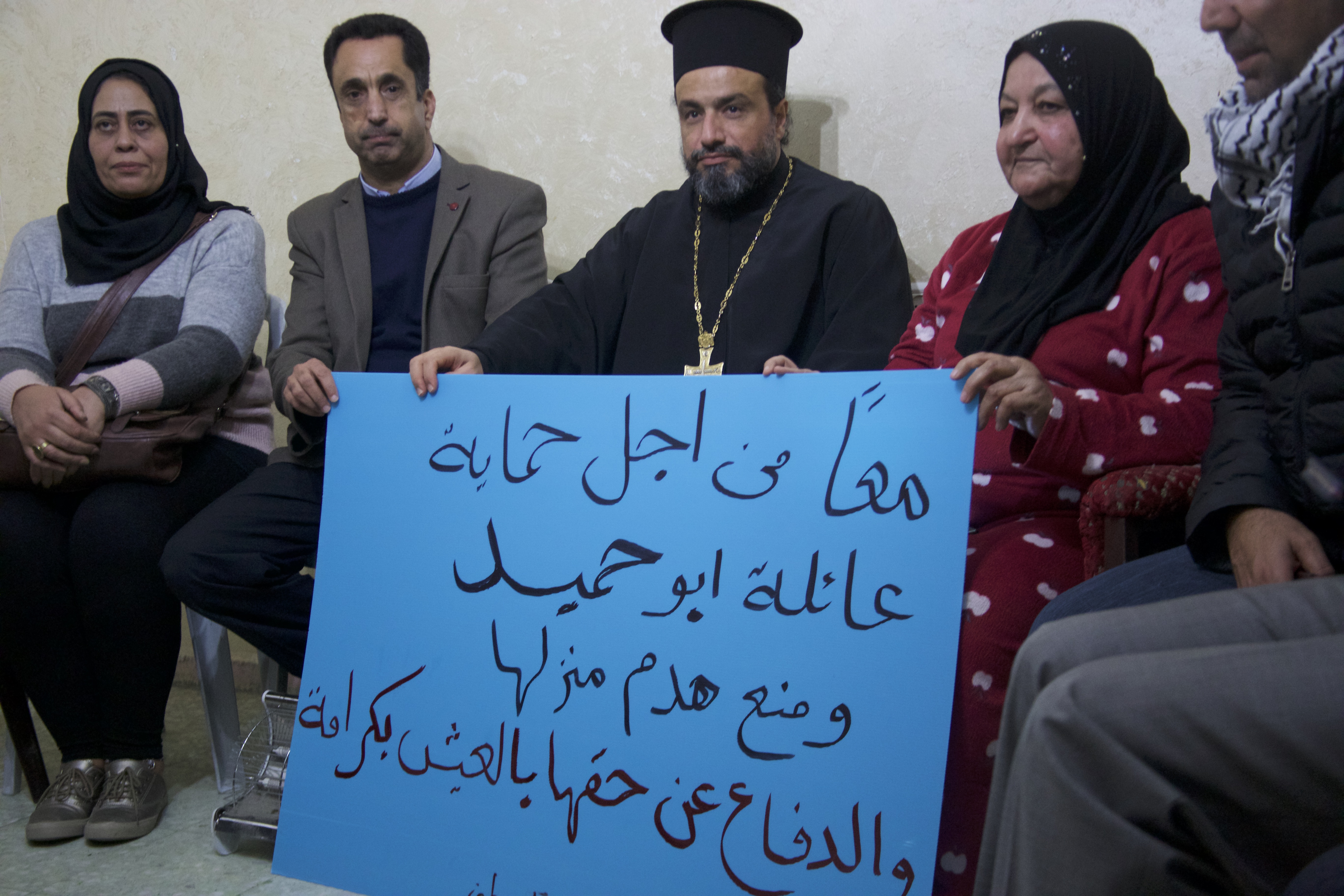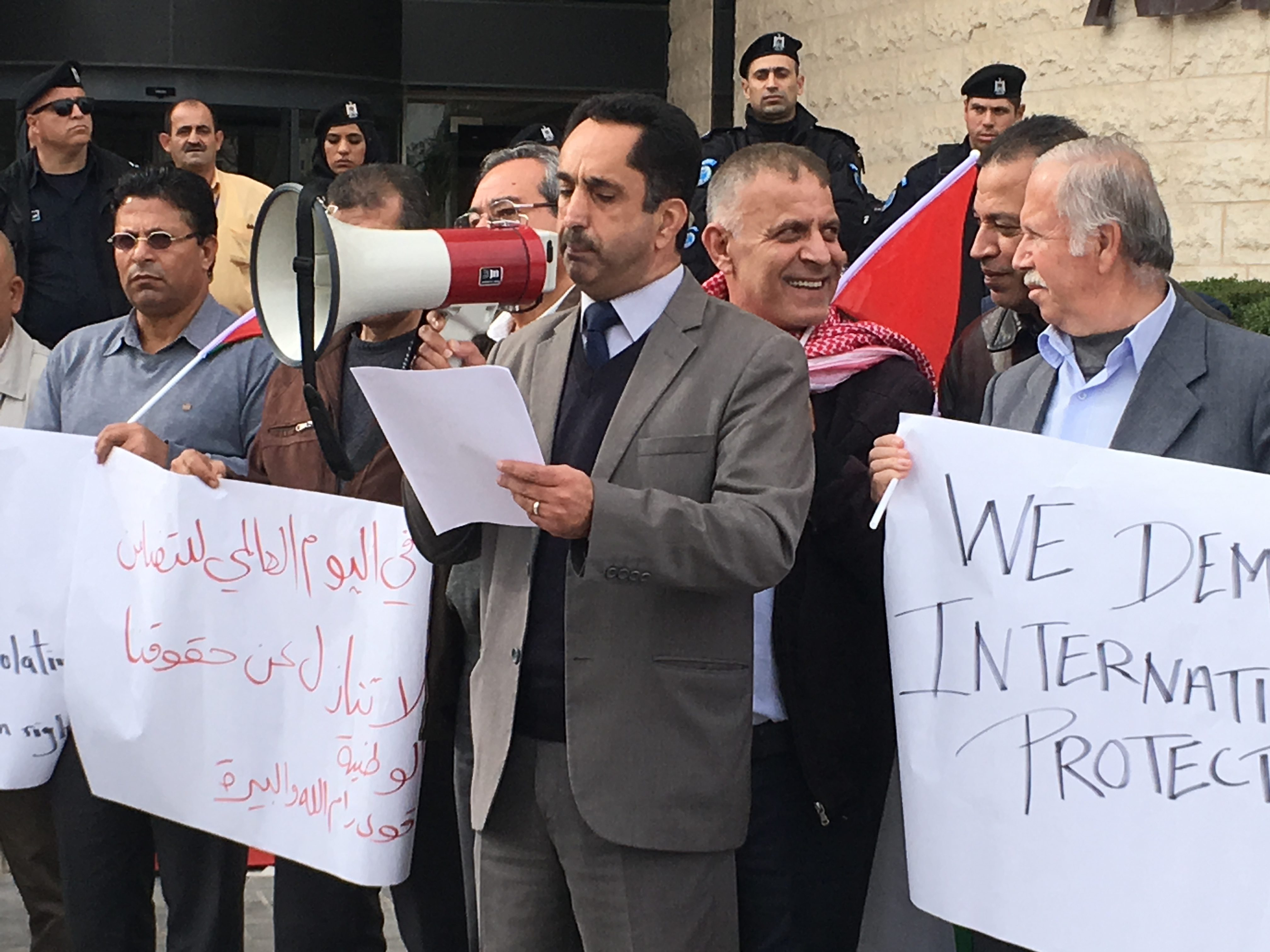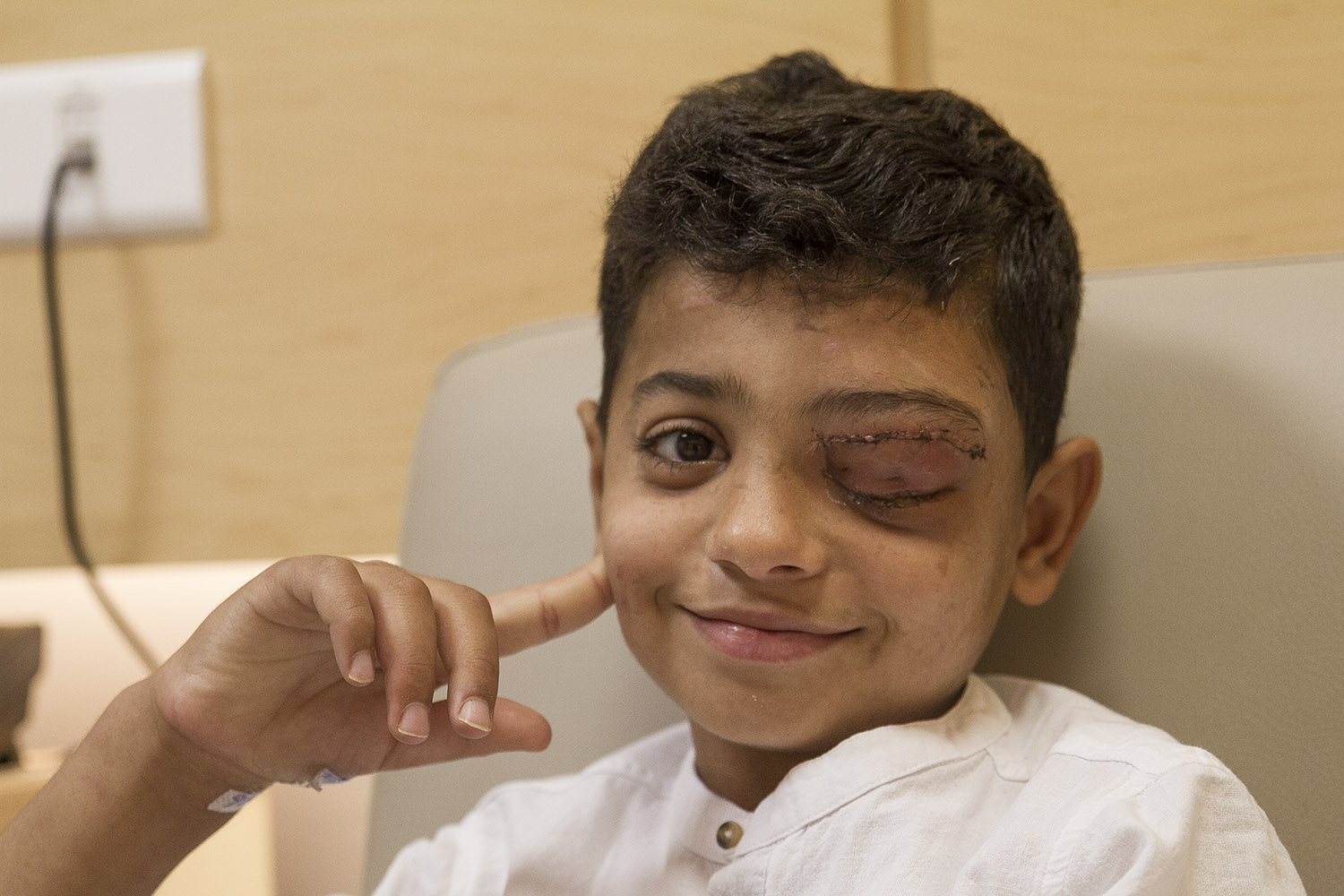Tag: Ramallah
-
Abu Humaid’s Family Home Issued Demolition Notice
The Abu Humaid family from the Al Amari refugee camp held a press conference in defiance of the notification for the demolition of their 4 story home. The Israeli Forces want to destroy the Al Amari building because of their long history of resistance against the Occupation.
-
It’s International Day of Solidarity with the Palestinian People, but Israel still lays claim to the longest occupation of our time
30 November 2018 | International Solidarity Movement, Ramallah team | Ramallah, occupied Palestine November 29 marks the 71st anniversary that the UN General Assembly adopted Resolution 181 in 1947, which later became known as “International Day of Solidarity with the Palestinian People.” Leaders in Ramallah called on the UN to recognize that resolution, during a…
-
“I just want him to be a normal boy again’: Gaza family appeal for urgent help to support treatment of 11 year old Mahmoud who was shot in the face by an Israeli sniper
Mahmoud Sawalhi is an 11 year-old boy from Gaza who was shot in the head and the shoulder with live ammunition by an Israeli sniper on the 14th May Great Return March protests. A bullet passed through his eye and out of the top of his head, and he lost both his eye and…



